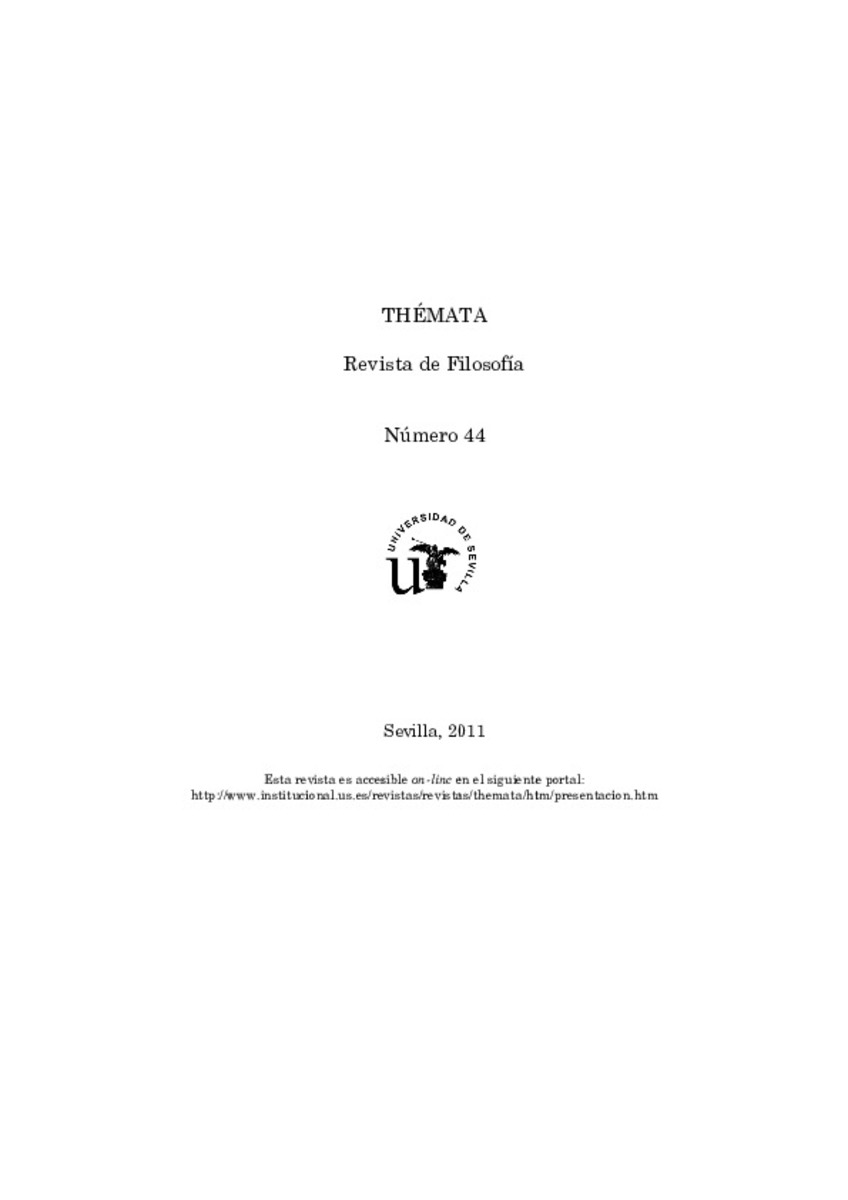Full metadata record
| DC Field | Value | Language |
|---|---|---|
| dc.creator | González, A.M. (Ana Marta) | |
| dc.date.accessioned | 2011-03-08T10:46:03Z | - |
| dc.date.available | 2011-03-08T10:46:03Z | - |
| dc.date.issued | 2011 | - |
| dc.identifier.citation | Thémata. Revista de Filosofía. Número 44. 2011, pp. 308-325 | es_ES |
| dc.identifier.issn | 0212-8365 | - |
| dc.identifier.uri | https://hdl.handle.net/10171/16870 | - |
| dc.description.abstract | En este artículo se trata de hacer explícito el modo en que opera el principio del equilibrio de pasiones, que Hume pone en juego tanto para explicar la formación de la institución familiar como para explicar la formación de la sociedad civil. El uso consistente de este principio justifica considerar la filosofía moral de Hume como referente de una teoría psico-social de la génesis de las instituciones. In this paper I try to make explicit the way in which, according to Hume, the family as an institution emerges from the operation of a principle that could be called “the principle of the balance of passions”; I also attempt to show the way in which civil society somehow becomes possible insofar as it represents an artificial replication of that natural balance. The consistent use of that principle justifies regarding Hume’s moral philosophy as a reference point for a psycho-social genesis of social institutions. | es_ES |
| dc.language.iso | spa | es_ES |
| dc.rights | info:eu-repo/semantics/openAccess | es_ES |
| dc.subject | Filosofía Social | es_ES |
| dc.subject | Hume | es_ES |
| dc.subject | Equilibrio de pasiones | es_ES |
| dc.subject | Familia | es_ES |
| dc.subject | Sociedad civil | es_ES |
| dc.subject | Castidad | es_ES |
| dc.subject | Cortesía | es_ES |
| dc.title | La oposición de pasiones y su superación en el trato social según Hume: familia, castidad y cortesía | es_ES |
| dc.type | info:eu-repo/semantics/article | es_ES |
Files in This Item:
Statistics and impact
Items in Dadun are protected by copyright, with all rights reserved, unless otherwise indicated.






